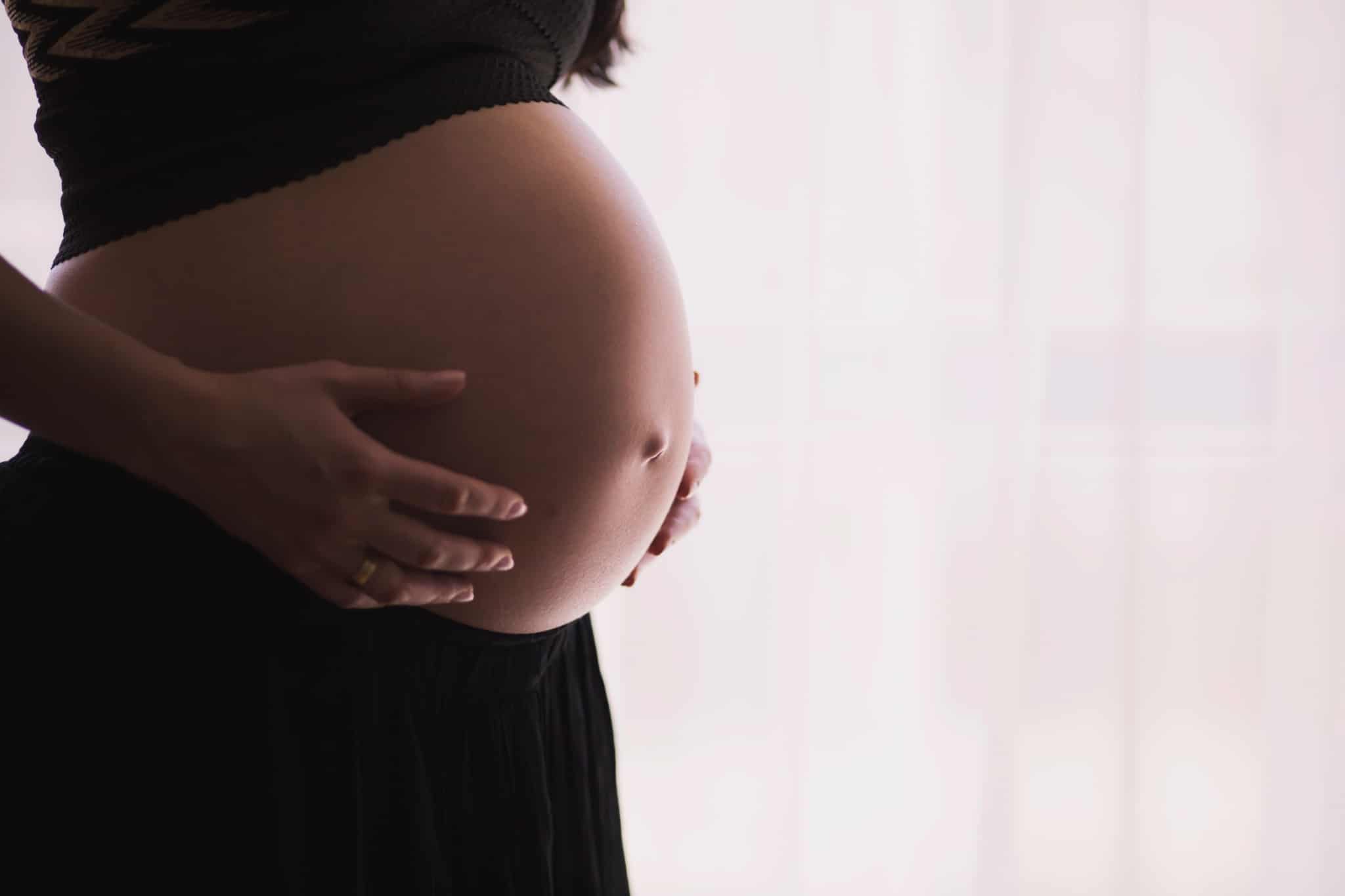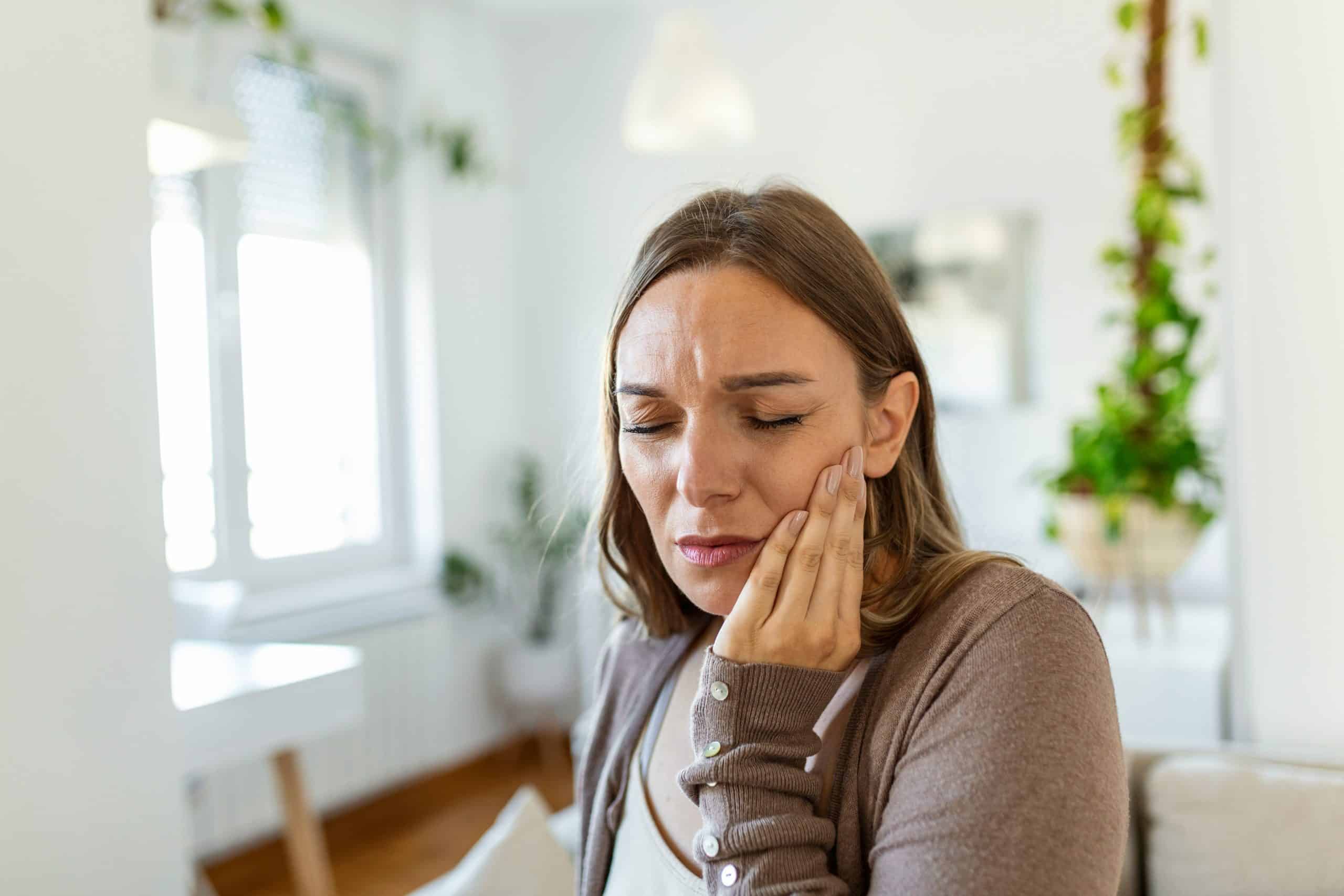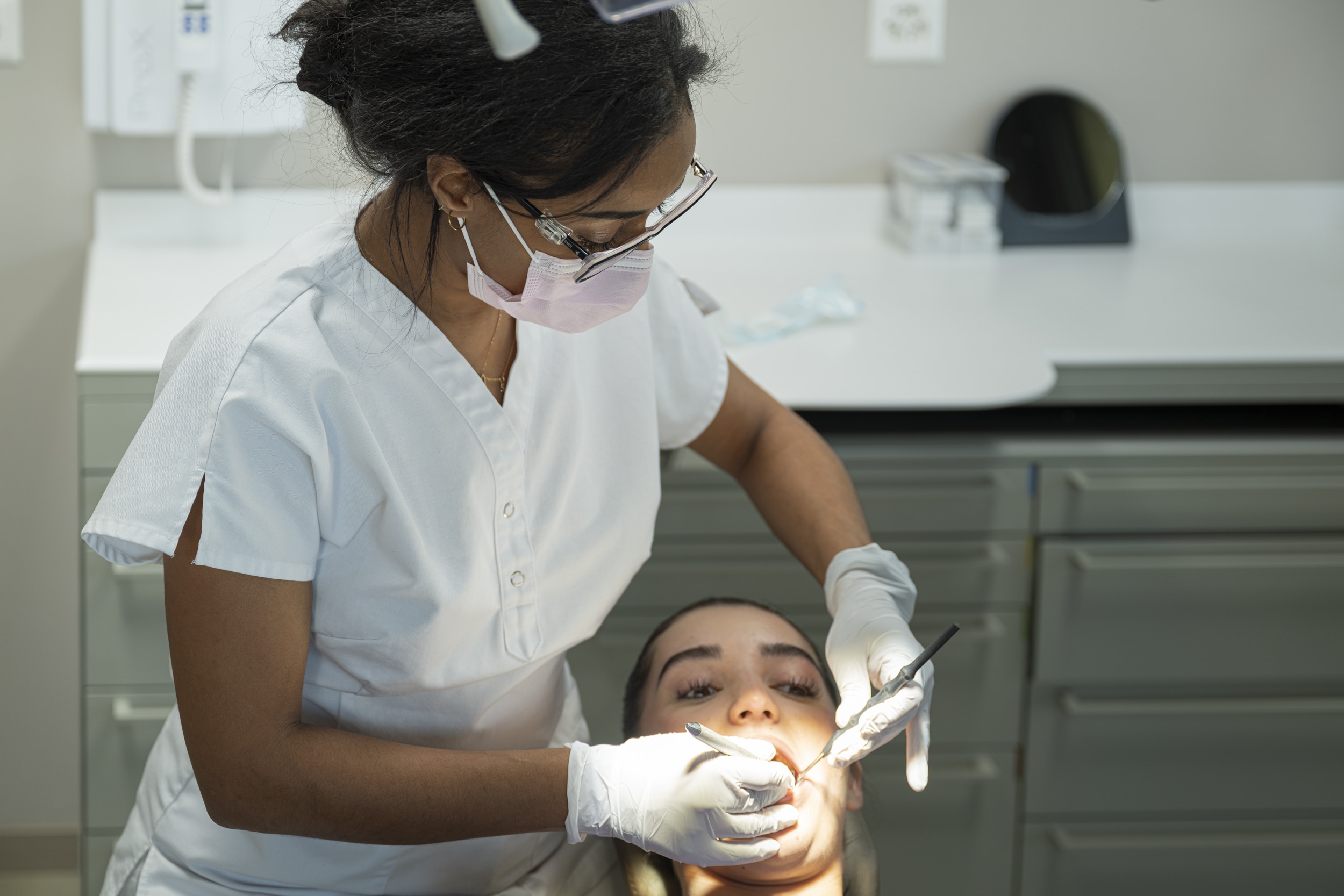During pregnancy, dental health is essential, particularly to prevent gum problems
Pregnancy is a time of upheaval. From physical changes to lifestyle modifications, it can have an impact on your dental health.
Adequate dental care, a balanced diet and regular check-ups help keep your teeth and gums healthy.
Hormones such as oestrogen and progesterone increase the sensitivity of the gums to plaque build-up. They can also affect the ligaments and bone that support the teeth and cause the gums to bleed.
- If you suffer from morning sickness during the first trimester or from acid reflux afterwards, these phenomena can increase acidity in the mouth of pregnant women.
- If you feel an irresistible craving for something sweet, you should know that sugar can create an environment favorable to the proliferation of bacteria.
- If you feel like drinking fizzy drinks (iced tea, lemonade, fruit juice), they are harmful to your teeth. The acid softens the surface of the tooth (erosion) and the sugar acts as food for plaque bacteria.
Faced with the physiological transformations that occur during pregnancy, women have many questions and are apprehensive about dental procedures. Our dentists are informed and trained about the consequences of treatments during this period of your life. They will guide you with therapeutic advice.
When you are pregnant, it is essential to fight against dental plaque and ensure that you get enough fluoride. This helps prevent tooth decay and gingivitis.
1. Gingivitis
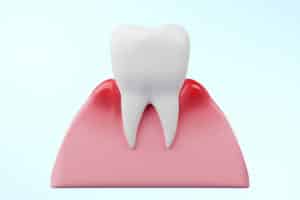
La gingivite est une maladie des gencives qui ne provoque pas de dommages irréversibles. Elle touche environ la moitié des femmes enceintes, en raison des bouleversements hormonaux. Elles entraînent une inflammation de la gencive et peut survenir dès les premières semainesGingivitis is a gum disease that does not cause irreversible damage. It affects about half of all pregnant women, due to hormonal changes. These changes cause gum inflammation, which can occur in the first few weeks.
During pregnancy, the levels of oestrogen and progesterone increase constantly. This hormonal impregnation means that the gums of the pregnant woman overreact to the presence of dental plaque. This sometimes results in inflammation of the gums and bleeding.
People with gingivitis have red, swollen and bleeding gums. If gingivitis is not treated, it can lead to a more serious disease and cause tooth loss as well as permanent damage to the gums.
Ask our dentists for advice on the most appropriate ways to maintain good dental hygiene. This will help to eliminate dental plaque containing pathogenic germs as much as possible.
You will find more information on periodontal disease by clicking on this link.
2. Tooth decay
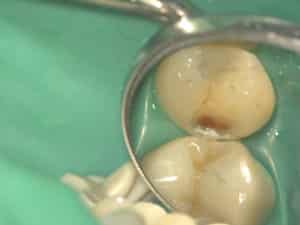
Vomiting during pregnancy, as well as sugar cravings, increase the risk of tooth decay. However, certain measures can reduce this risk:
- If you vomit, rinse your mouth with water or mouthwash, as the acidity of vomit can decalcify tooth enamel.
After vomiting, wait 30 minutes before brushing your teeth with fluoride toothpaste. This is because teeth are more fragile immediately after coming into contact with acid, and brushing your teeth straight away can damage the enamel. - If tooth decay or infections appear during pregnancy, it is important to treat them. The second trimester is generally an ideal time for treatment because the nausea will usually have disappeared. At this stage, the baby’s organs are formed. This reduces the risk of side effects from the medications and products used during treatment.
During the third trimester, however, dental treatment can be more difficult, because lying on your back for long periods of time is often uncomfortable for pregnant women.
In any case, our dentists will be able to assess the degree of urgency and the need to treat the tooth decay or not, and whether it is advisable to wait until the baby arrives.
You will find more information on cariology by clicking on this link.
Plus d’informations sur ce lien.
X-rays and pregnancy
During pregnancy, our dentists can respond to a dental emergency at any time. In general, X-rays should be avoided as much as possible during the first trimester, as the organs settle over the course of 12-14 weeks. In case of an acute oral emergency, the usual precautions will be applied. Your stomach will be protected with a lead apron, to avoid any risk to the baby. In addition, it is possible to administer local anaesthesia to the patient. Note that a dental X-ray represents, in equivalent dose, a quarter of the amount received naturally from the sun, etc.
The key: good daily dental hygiene, even before pregnancy
In order to anticipate any problems, a consultation with your dentist is recommended as soon as you are planning to have a child. Given the physiological changes in the gums and saliva that can increase vulnerability to infection, a dental check-up, cleaning by a hygienist and fluoride treatment are therefore strongly recommended at this stage.
Some advice
- Use a soft toothbrush (neither medium nor hard) to avoid increasing the very common bleeding. The brush head should be as small as possible to avoid nausea.
- Brush your teeth with fluoride toothpaste. If you can no longer stand the smell of your usual toothpaste, try a neutral product.
Brush your teeth after every meal and replace sugary drinks with water.

In short, before and during your pregnancy, don’t hesitate to ask your dentist for advice. Ask him to explain all the possible preventive measures to ensure proper oral hygiene. This will not only help you avoid tooth decay, but also gum inflammation.
These preventive measures will also have a positive effect on the health of your child’s teeth.
Our dental hygienists will be able to direct you towards appropriate treatment.
Official links
Office fédéral de la santé publique (OFSP): Official health information in Switzerland.
Société Suisse des Médecins-Dentistes (SSO) : Information on dentistry in Switzerland.
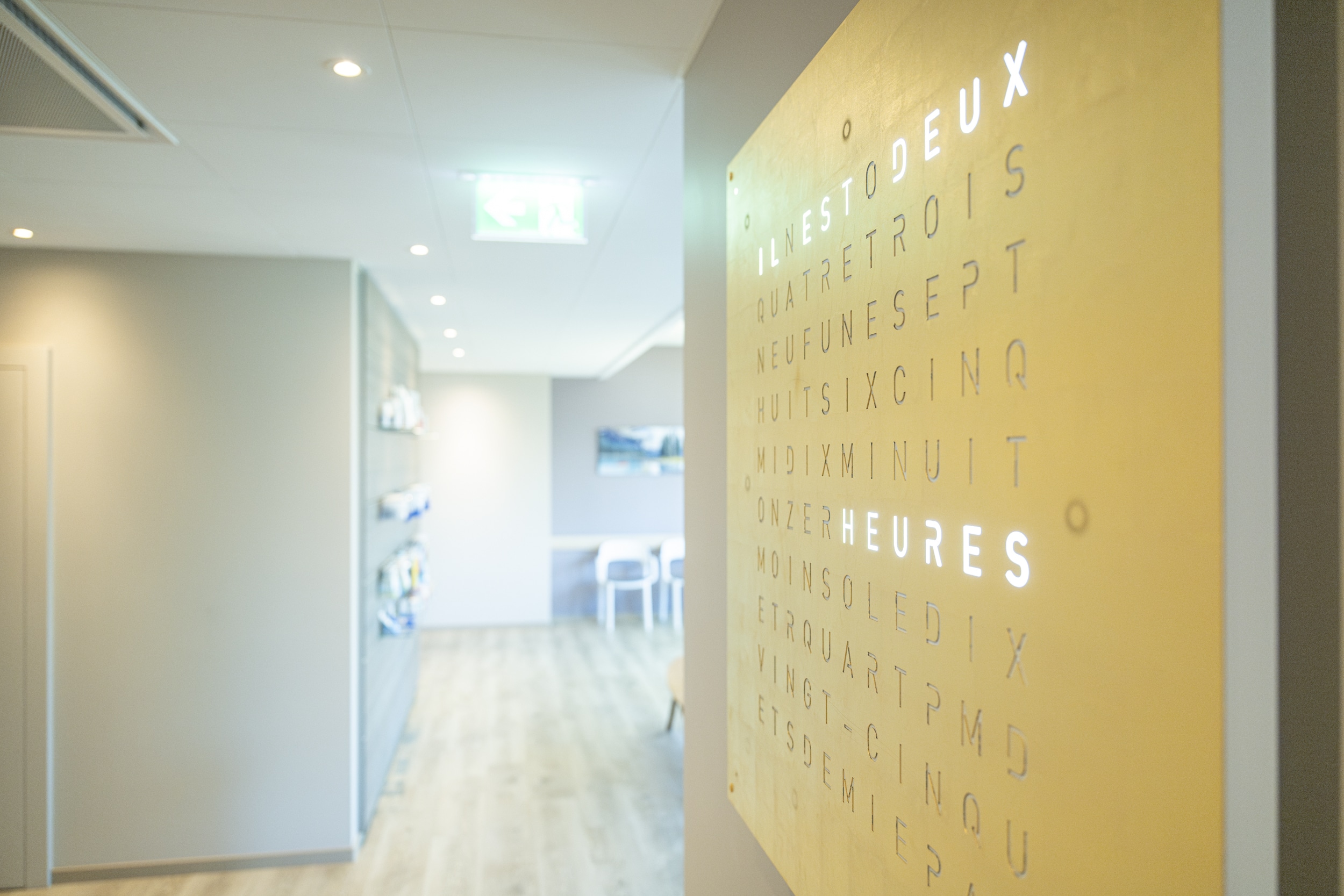
Care and emergencies 6 days a week, Monday to Saturday
